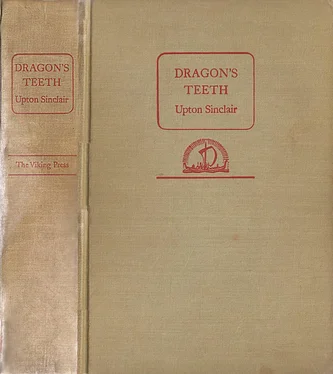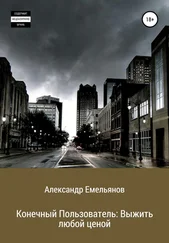Пользователь - o 3b3e7475144cf77c
Здесь есть возможность читать онлайн «Пользователь - o 3b3e7475144cf77c» весь текст электронной книги совершенно бесплатно (целиком полную версию без сокращений). В некоторых случаях можно слушать аудио, скачать через торрент в формате fb2 и присутствует краткое содержание. Жанр: Старинная литература, на русском языке. Описание произведения, (предисловие) а так же отзывы посетителей доступны на портале библиотеки ЛибКат.
- Название:o 3b3e7475144cf77c
- Автор:
- Жанр:
- Год:неизвестен
- ISBN:нет данных
- Рейтинг книги:4 / 5. Голосов: 1
-
Избранное:Добавить в избранное
- Отзывы:
-
Ваша оценка:
- 80
- 1
- 2
- 3
- 4
- 5
o 3b3e7475144cf77c: краткое содержание, описание и аннотация
Предлагаем к чтению аннотацию, описание, краткое содержание или предисловие (зависит от того, что написал сам автор книги «o 3b3e7475144cf77c»). Если вы не нашли необходимую информацию о книге — напишите в комментариях, мы постараемся отыскать её.
o 3b3e7475144cf77c — читать онлайн бесплатно полную книгу (весь текст) целиком
Ниже представлен текст книги, разбитый по страницам. Система сохранения места последней прочитанной страницы, позволяет с удобством читать онлайн бесплатно книгу «o 3b3e7475144cf77c», без необходимости каждый раз заново искать на чём Вы остановились. Поставьте закладку, и сможете в любой момент перейти на страницу, на которой закончили чтение.
Интервал:
Закладка:
letters with news of one's friends. Lanny opened one from his father, and exclaimed: "Robbie's
coming to Paris! He's due there now!"
"Oh, dear!" said the wife. She knew what was coming next. "I really ought to see him, Irma.
It's been eight months." "It's been exactly as long since I've seen my mother." "Surely if your
mother were in Paris, I'd be offering to take you." "It'll be so dreadfully lonesome on the yacht,
Lanny!" "I'll take a plane and join you at Lisbon in three or four days. You know Robbie's
been in a crisis and I ought to find out how he's getting along."
Irma gave up, but not without inner revolt. She was going through such a trying ordeal,
and people ought to do everything to make it easier for her. A violent change from
being the glamour girl of Broadway, the observed of all observers, the darling of the
columnists and target of the spotlights—and now to be in exile, almost in jail for all these
months! Would anybody ever appreciate it? Would Baby appreciate it? Irma's
observation of children suggested that Baby probably would not.
She thought of taking a couple of cars and transporting her half of the lactation
apparatus up to Paris. But no, it would upset all the arrangements of the admirable Miss
Severne; Baby might pick up a germ in the streets of a crowded city; it was so much safer
out at sea, where the air was loaded with a stuff called ozone. And there was Rahel, with
whom Irma had agreed to stick it out; knowing it would be hard, she had wanted to tie
herself down, and had made a bargain.
"Another thing," Lanny said; "Zoltan Kertezsi should be in Paris and might help me to
sell a picture or two."
"Oh, dear!" exclaimed the wife. "Do you still want to fool with that business?"
"A little cash would come in handy to both Beauty and me."
"I don't think it's kind of you, Lanny. There's no sense in your bothering to make
money when I have it. If you have any time to sell, do please let me buy it!"
They had talked about this many times. Since Robbie couldn't afford to send Beauty
her thousand dollars a month, Irma insisted upon putting it up. She wanted the life of
Bienvenu to go on exactly as before. The cost was nothing to her, and she liked the
people around her to be happy. She would send money to Lanny's account in Cannes,
and then she didn't want anybody to talk or think about the subject. That her husband
might actually enjoy earning a few thousand dollars by selling Marcel's paintings, or those
of old masters, was something hard for her to make real to herself. It was harder still for
Lanny to explain that he sometimes wanted to do other things than entertain an adored
young wife!
4
I Can Call Spirits
I
FROMthe windows of the Hotel Crillon Lanny Budd had looked out upon quite a lot of
history: the World War beginning, with soldiers bivouacked in the Place de la Concorde; the
war in progress, with enemy planes overhead and anti-aircraft firing; after the armistice, with a
great park of captured German cannon, and May Day mobs being sabered by cuirassiers. In the
hotel had lived and worked a couple of hundred American peace-makers, all of them kind to a
very young secretary-translator and willing to assist with his education. The only trouble was,
they differed so greatly among themselves that Lanny's mind had reached a state of confusion
from which it had not yet recovered.
Now the hotel had been restored to the system of private enter prise in which Robbie Budd so
ardently believed and which he was pleased to patronize regardless of cost. In view of his reduced
circumstances, he might well have gone to a less expensive place, but that would have been to
admit defeat and to declass himself. No, he was still European representative of Budd
Gunmakers, still looking for big deals and certain that Europe was going to need American
weapons before long. Keep your chin up, and make a joke out of the fact that you have lost
five or six million dollars. Everybody knows that you had to be somebody to have that
happen to you.
Here he was, comfortably ensconced in his suite, with a spare room for Lanny; his whisky
and soda and ice early in the morning, his little portable typewriter and papers spread out on
another table. He was in his middle fifties, but looked younger than he had in New York under
the strain of the panic. He had got back his ruddy complexion and well-nourished appearance;
a little bit portly, but still vigorous and ready to tackle the world. Already he was in the midst
of affairs; there was a Rumanian purchasing commission in town, and a couple of Soviet agents—
Robbie grinned as he said that he was becoming quite chummy with the "comrades"; he knew
how to "talk their language," thanks to Lanny's help. He meant, not that he could speak
Russian, but that he could speak Red.
Lanny told the news about the Dingles and the Robins, and Robbie in turn reported on the
family in Newcastle. Amazing the way the head of the Budd tribe was holding on; at the age of
eighty-three he insisted upon knowing every detail of the company's affairs; he sat in his study
and ran the business by telephone. Esther, Lanny's stepmother, was well. "I really think she's
happier since the crash," said the husband. He didn't add: "I have kept my promise to stay out
of the market." Lanny knew he didn't break promises.
They talked about Wall Street, about that "little bull market" which had everybody so stirred
up, a mixture of hope and fear currently known as the "jitters." When the Bessie Budd was
setting out, the market had been booming, and Robbie in a letter had repeated his old formula:
"Don't sell America short." Now stocks were slipping again, business going to pot,
unemployment spreading; but Robbie had to keep up his courage, all America had to hold
itself up by its bootstraps. The most popular song of the moment announced: "Happy days
are here again."
II
They discussed Johannes Robin and his affairs, in which Robbie was deeply interested. He was
going to Berlin on this trip: a subtle change in the relationship of the two associates, for in the
old days it had been Johannes who came to Paris to see Robbie. The Jewish trader was on top;
he hadn't lost any part of his fortune, and wasn't going to. He would never make Robbie Budd's
mistake of being too optimistic about this world, for he had made most of his money by
expecting trouble. Now he had sent a message, by Lanny, that he was going to help Robbie to
come back; but it would have to be
by the same judicious pessimism.
"He's a good sort," said Robbie, English-fashion. He knew, of course, that his old associate
couldn't very well drop him, even if he had wished to, because Hansi and Bess had made them
relatives. Moreover, Johannes was one of those Jews who desire to associate with gentiles and are
willing to pay liberally for it.
Having had long talks with the financier on board the yacht, Lanny could tell what was in his
mind. He considered that Germany was approaching the end of her rope; she couldn't make any
more reparations payments, even if she wished. Taxation had about reached its limits, foreign
credit was drying up, and Johannes couldn't see any chance of Germany's escaping another
bout of inflation. The government was incompetent, also very costly to deal with; that, of
course, was a money-man's polite way of intimating that it was corrupt and that he was
Читать дальшеИнтервал:
Закладка:
Похожие книги на «o 3b3e7475144cf77c»
Представляем Вашему вниманию похожие книги на «o 3b3e7475144cf77c» списком для выбора. Мы отобрали схожую по названию и смыслу литературу в надежде предоставить читателям больше вариантов отыскать новые, интересные, ещё непрочитанные произведения.
Обсуждение, отзывы о книге «o 3b3e7475144cf77c» и просто собственные мнения читателей. Оставьте ваши комментарии, напишите, что Вы думаете о произведении, его смысле или главных героях. Укажите что конкретно понравилось, а что нет, и почему Вы так считаете.




